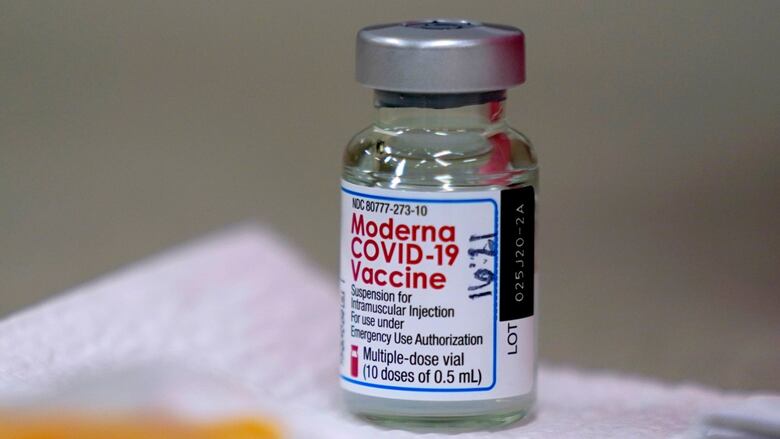5,300 Moderna vaccines will go to First Nations communities starting this week
A team of First Nations health experts has identified priority communities to receive the COVID-19 vaccine

Thousands of doses of the Moderna COVID-19 vaccine will be shipped to First Nations communities around Manitoba, starting as soon as this week, the provincial government announced Thursday.
The province expects a shipment of 7,300 Moderna vaccine doses to arrive this week, 5,300 of which will be immediately available to First Nations.
"I think it brings some hope, really, to all of us that we're going to get through this soon, rather than later," said Grand Chief Jerry Daniels of the Southern Chiefs organization (SCO).
Over the last couple of weeks, a team of First Nations health experts has collaborated with the provincial vaccine implementation task force to identify priority communities and populations to receive the first doses.
The team includes representatives from SCO, as well as the Assembly of Manitoba Chiefs, Manitoba Keewatinowi Okimakinak (MKO) and Indigenous health researchers from the University of Manitoba.
"We are pleased at the partnership and spirit of collaboration that has developed and will continue as the delicate decisions around the deployment of this vaccine are made," Dr. Barry Lavallee, health lead for MKO and CEO of Keewatinohk Inniniw Minoayawin, said in a news release.
Melanie MacKinnon, the head of Ongomiizwin at the U of M and a member of the First Nations advisory team, told CBC News that more details about the distribution of the vaccine — including which communities would get priority access — would be announced this weekend.
Daniels said the emphasis will be on isolated communities, such as Little Grand Rapids, Poplar River and Pauingassi in the south, as well people in long-term care homes, the elderly and people with compromised immune systems.
Health workers get priority
Arlen Dumas, Grand Chief of the Assembly of Manitoba Chiefs, said front-line health workers will get first priority.
"It's going to go primarily to all of the people on the ground, the front-line workers, the people who will be giving the vaccine," he said.
Although the province launched its vaccination program on Dec. 16 with the arrival of the first shipments of the Pfizer-BioNTech vaccine, the storage requirements for it meant that remote and northern communities had to wait for the Moderna vaccine, which can be transported more easily.
The provincial government says it has committed to making planes available to take the vaccine to priority locations.
First Nations hit hard
In an interview with CBC News on Tuesday, Lavallee said Manitoba could alleviate pressure on the province's health system by prioritizing Indigenous people, which make up a disproportionate number of COVID-19 hospitalizations and intensive care unit admissions.
First Nations currently make up a third of those in hospital with COVID-19 and more than 40 per cent of intensive care unit patients. Out of Manitoba's 63 First Nations, 54 have had COVID-19 cases.
Lavallee also said it was the work of First Nations health scholars, as well as pressure from First Nations leaders that convinced the provincial government to invite Indigenous experts to the table.
The province says it is prioritizing health-care workers and elder-care facilities in First Nations communities, as well as offering joint training for First Nations immunization teams, access to its best practices and guiding documents and collaborating on an immunization promotional campaign.
A dedicated vaccination site will also open in Thompson to serve northern and remote communities, including First Nations. This will allow the Pfizer-BioNTech vaccine to be shipped north, along with the Moderna vaccine.
By the end of March, Manitoba is set to receive a per-capita allotment of 228,000 doses of the Pfizer-BioNTech and Moderna vaccines, as well as an extra 9,600 doses of the Moderna vaccine dedicated to First Nations.

